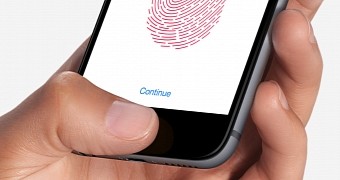Apple is giving anyone a lesson in being true to your mission. It's been almost a month since the Cupertino team has resisted the FBI request to create a new, flawed iOS in order for the Government agents to break into an iPhone that may or may not contain information good for an important case.
If you are a close Apple follower, you may already know what this is about. Three months ago there was a mass shooting event in San Bernardino, California. 14 people were gunned down and 22 others were injured. The gunmen were found and killed by the police. Now this may be seen as a tragic but common event in the United States. Mass shootings are happening every other week. The issue with these attackers is that they were linked to terrorist groups and police found an impressive gun arsenal in their home.
All in an iPhone
FBI has about 200 iPhones coming from different tragedies that they are waiting to unlock. Unfortunately for them, Apple had implemented a feature in iOS that makes it virtually impossible for someone to break into an iPhone unless they know the password. Ten tries later you’re locked out and all the information on the phone is erased.
One of the San Bernardino attackers used an iPhone 5c. The latest back-up to iCloud was done 3 weeks prior to the mass shooting and FBI already has all that information. They want to get into the phone in order to recover the last 3 weeks’ worth of information.
FBiOS
The only way to get that information without risking the iOS to delete it would be for Apple to write a totally new operating system. Sure, it is possible. But Apple says they do not want to create a software cancer for their phones.
The FBI-friendly iOS (or FBiOS, as we call it) can be used on virtually any iPhone and the feds can get any info they want of off any smartphone that comes out of Cupertino. This also opens the flood gates for other countries and governments. Imagine China or Russia asking Apple to give out the FBiOS so they can solve crimes in their territories. No one would feel safe knowing that their Government has an always-ready backdoor into their smartphones.
The Silicon Valley hand and the political side of the battle
Other big players in Silicon Valley have announced they support Apple in its mission. Facebook and Google are just as important when it comes to privacy, and this case is not about winning over terrorists, as it is about keeping our information private.
Presidential candidates in US primaries used this battle as a political argument against Apple. But I am not going to go there today.
In an ABC interview, Tim Cook calls this the software equivalent of cancer:
"It is, in our view, the software equivalent of cancer. Is this something that should be created? Technology can do so many things. But there are many things technology should never be allowed to do. And the way you not allow it, is to not create it," Tim Cook said.
How will the iPhone evolve after this?
OK. This is where I wanted to get. The iPhone 5c of one of the shooters doesn't even have Touch ID so there is no "Secure Enclave" embedded into the chip. There may even be ways for hackers (or the NSA) to solve this problem without asking for Apple's permission.
However, Apple's stand on this issue made it clear that the future iPhones will get stronger security and privacy features. Touch ID and the Secure Enclave should be more than enough for today's smartphone. After all, all the security info is stored locally and there's no way to get inside the phone without deleting everything.
What more can Apple do to further secure the phone? Encrypted, self-destructing iCloud backups would be the first step. Now the FBI had access to the latest iCloud back-up, even though that was on Apple's servers. Software can be re-written, but hard-coding security features into the device itself would make it difficult for any Court or Government Agency to break into an iPhone.
And if they cannot do that, hackers and regular people will not be able to. This may very well sound like a great marketing strategy, but take a step back and judge it from another angle: what if an evil government gets a phone that has information about the US' plans? With an iPhone 5c and an FBiOS on their side, they would win every war.
It's funny that the FBI is using the "All Writs Act" - a 227-year-old judiciary act that gives them a hand over Apple. This is not the first time a Federal entity asked Apple to extract data from an iPhone. A criminal case from November of 2014 could have been solved using the same method.
Beyond the political aspect of this, beyond the tragedy of the families involved in the San Bernardino shooting this is only a case about standing tall. Apple has the money (to pay the lawyers) and the voice to shout their principles.

 14 DAY TRIAL //
14 DAY TRIAL //